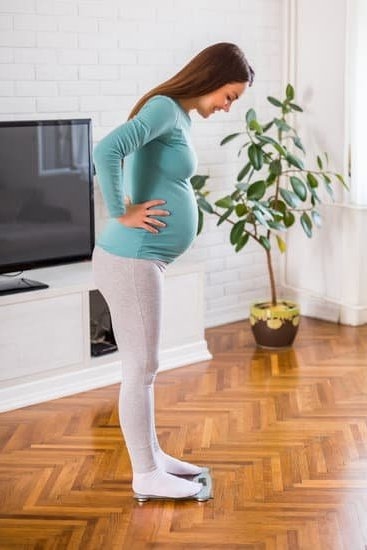When it comes to pregnancy testing, timing is everything. The question many women often ask is, can you take a pregnancy test too early? The accuracy of a home pregnancy test largely depends on the timing of when it is taken in relation to the menstrual cycle. Understanding the importance of timing in pregnancy testing is crucial for obtaining reliable results.
Home pregnancy tests work by detecting the hormone hCG (human chorionic gonadotropin) in urine, which is produced during pregnancy. However, taking a test too early in the cycle may not provide enough hCG to be detected, resulting in a false negative result. Factors such as ovulation date and implantation time can also influence the accuracy of the test, making it essential to wait for the right moment to test.
Recognizing early signs of pregnancy before testing can help determine if it’s too soon to take a pregnancy test. Symptoms such as missed periods, breast tenderness, nausea, fatigue, and frequent urination are common indicators of pregnancy. Understanding these signs can help women gauge when it might be appropriate to take a test and increase the chances of obtaining accurate results.
How Pregnancy Tests Work
When it comes to understanding the science behind home pregnancy tests, it is important to know how these tests actually work. Home pregnancy tests detect the presence of a hormone called human chorionic gonadotropin (hCG) in urine. This hormone is produced by the placenta shortly after a fertilized egg attaches to the uterine lining. The amount of hCG in the body increases rapidly in early pregnancy, which is why it serves as a reliable marker for detecting pregnancy.
To understand the process further, here are some key points regarding how pregnancy tests work:
- Detection Threshold: Most home pregnancy tests can detect hCG levels as low as 25 mIU/mL, allowing for early detection of pregnancy.
- Sampling Method: Pregnancy tests require sampling of urine, which should be done with either a midstream collection or by immersing the test strip directly into a cup of urine according to the instructions provided.
- Test Result Interpretation: Results typically appear within minutes, with most tests displaying lines or symbols indicating whether or not hCG is present in the urine sample.
Understanding these basic mechanisms behind home pregnancy tests can help individuals interpret their results accurately and make informed decisions about when to take a test for optimal accuracy. It is essential to follow the instructions provided with each test kit carefully to ensure reliable results.
Additionally, it’s important to consider that taking a pregnancy test too early can lead to false negative results due to low levels of hCG that may not be detectable at that time. By waiting until the recommended timeframe for testing based on the sensitivity of the test used and potential conception date, individuals can increase their chances of obtaining accurate results and avoiding unnecessary anxiety or confusion.
So, if you find yourself wondering “can you take a pregnancy test too early?” remember that timing plays a crucial role in achieving reliable results.
Factors Affecting Pregnancy Test Accuracy
Taking a pregnancy test too early can lead to inaccurate results due to a variety of factors that can affect the test’s accuracy. It is important to understand these reasons in order to ensure reliable results when trying to determine if you are pregnant. Here are some key factors that may impact the accuracy of a pregnancy test when taken too early:
- Levels of hCG Hormone: Home pregnancy tests detect the presence of the hCG hormone in your urine, which is produced by the placenta after implantation occurs. If you test too early, before there is enough hCG present in your body, you may receive a false negative result.
- Timing of Implantation: Implantation, when the fertilized egg attaches to the uterine lining, typically occurs 6-12 days after ovulation. Testing before implantation may also result in a false negative result as there may not be enough hCG produced yet.
- Length of Menstrual Cycle: The length of your menstrual cycle can also affect when it is best to take a pregnancy test. If you have irregular cycles or are unsure of when your last period was, it may be difficult to determine the optimal time for testing.
Understanding these factors can help you decide when to take a pregnancy test to achieve accurate results. It is recommended to wait until you have missed your period or at least one week after potential conception to increase the likelihood of obtaining an accurate result.
In addition, it is essential to follow the instructions provided with the home pregnancy test kit carefully. Using first-morning urine and avoiding excessive fluid intake before testing can help ensure more accurate results.
If you suspect you might be pregnant but receive a negative result on your initial test, consider waiting a few days and testing again for confirmation. Patience and proper timing are key when it comes to taking a pregnancy test for accurate results and peace of mind.
Early Signs of Pregnancy
When it comes to early signs of pregnancy, it’s important to pay attention to your body and recognize any changes that may indicate you are pregnant. While these symptoms vary from woman to woman, there are some common signs that might hint at a possible pregnancy before taking a test.
Changes in Breast Sensitivity
One of the earliest signs of pregnancy is a change in breast sensitivity. Your breasts may feel tender or swollen as early as one to two weeks after conception. This is due to hormonal changes in your body preparing for breastfeeding if you are indeed pregnant.
Feeling Fatigued
Another common symptom of early pregnancy is feeling more tired than usual. The increased levels of progesterone can make you feel exhausted even in the early stages of pregnancy. If you find yourself needing more rest or experiencing sudden fatigue, it could be a sign that you are expecting.
Nausea and Food Aversions
Morning sickness, which can actually occur at any time of the day, is a well-known symptom of early pregnancy. You may also experience food aversions or cravings that you didn’t have before. While nausea and vomiting
Ultimately, recognizing these early signs of pregnancy can help prepare you for taking a test at the right time. However, keep in mind that these symptoms alone are not definitive proof of being pregnant – taking a home pregnancy test is still the most accurate way to confirm your suspicions.
When Is the Best Time to Take a Pregnancy Test
Taking a pregnancy test at the right time is crucial to getting accurate results. So, can you take a pregnancy test too early? The short answer is yes. Home pregnancy tests detect the presence of human chorionic gonadotropin (hCG) hormone in urine, which is produced when a fertilized egg implants in the uterus. If you take a test too early, your body may not have produced enough hCG for the test to detect, leading to a false negative result.
The ideal timing for taking a pregnancy test is usually after you have missed your period. However, some highly sensitive tests claim to detect pregnancy even before your missed period. These tests are designed to be taken several days before your expected period but keep in mind that results may not be as accurate as waiting until after you have missed your period.
The accuracy of a pregnancy test increases the longer you wait to take it after a missed period. Research suggests that waiting at least one week after your missed period can yield more reliable results.
If you suspect you might be pregnant but receive a negative result, wait a few days and try testing again. Remember that stress and hormonal imbalances can also affect the accuracy of the test, so it’s essential to consult with your healthcare provider if you have concerns about the results.
| Timing | Accuracy |
|---|---|
| Before Missed Period | Less accurate |
| One Week After Missed Period | More reliable |
How Soon Can You Take a Pregnancy Test After Conception
When it comes to the pressing question of “Can You Take a Pregnancy Test Too Early,” it is crucial to understand the optimal timing for accurate results. The accuracy of a pregnancy test depends on various factors, including the levels of human chorionic gonadotropin (hCG) in the body. This hormone is produced after a fertilized egg attaches itself to the uterine lining, making it an essential marker for pregnancy detection.
Typically, hCG levels start to rise rapidly after implantation occurs, which typically happens about 6-12 days after conception. However, attempting to take a pregnancy test too early before there is enough hCG in your system could lead to false negative results. Many home pregnancy tests claim they can detect pregnancy as early as 10 days after conception, but waiting until at least one week after a missed period provides more reliable and accurate results.
Despite the eagerness and anticipation that often accompany suspicions of pregnancy, patience is truly key when it comes to testing. Taking a pregnancy test too early can result in disappointment or confusion due to potential false negative results. It is essential to wait until the appropriate time frame has passed post-conception before relying on a home pregnancy test for confirmation.
False Negative Results
When it comes to pregnancy testing, one common concern is the possibility of receiving a false negative result. This can happen when taking a pregnancy test too early after conception. Home pregnancy tests work by detecting the hormone hCG (human chorionic gonadotropin) in urine, which is produced during pregnancy.
However, if you test too early, the levels of hCG may not be high enough to be detected by the test yet, leading to a false negative result. This begs the question: can you take a pregnancy test too early?
It is recommended to wait at least one week after missing your period to take a home pregnancy test for more accurate results. Testing before this time frame can increase the chances of getting a false negative result.
It is essential to understand that each woman’s body is different, and hCG levels can vary from person to person. Factors such as the length of your menstrual cycle and when implantation occurs also play a role in when hCG levels rise enough for detection.
In some cases, even if you are pregnant, you may still receive a negative result on a home pregnancy test if taken too early. If you suspect you might be pregnant but receive a negative result, it is advisable to wait a few days and retest or consult with your healthcare provider for further guidance. Patience and timing are key when it comes to pregnancy testing to ensure accurate results and avoid unnecessary stress or confusion.
| Key Considerations | Details |
|---|---|
| Recommended Timeframe | Wait at least one week after missing your period for more accurate results |
| Varying Factors | Menstrual cycle length and implantation timing can impact hCG levels |
| Action Steps | If in doubt, wait and retest or seek advice from a healthcare professional |
Tips for Accurate Testing
When it comes to taking a pregnancy test, accuracy is key in determining the results. To ensure reliable results, there are several tips and advice that can be followed to make sure that the test is taken correctly and at the right time.
Follow Instructions Carefully
One of the most important tips for accurate testing is to carefully follow the instructions provided with the home pregnancy test kit. Each brand may have specific guidelines for how to use the test, including when and how to read the results. Failure to follow these instructions can lead to inaccurate results.
Use First Morning Urine
For the most accurate results, it is recommended to use first morning urine when taking a pregnancy test. This is because the concentration of hCG (human chorionic gonadotropin) hormone, which indicates pregnancy, is highest in the morning. By using first morning urine, you
Avoid Drinking Too Much Fluid Before Testing
Drinking too much fluid before taking a pregnancy test can dilute your urine sample, potentially affecting the accuracy of the results. It is advisable to limit fluid intake a few hours before testing to ensure that your urine is concentrated enough for an accurate reading. By following these tips, you
Conclusion
In conclusion, the timing of a pregnancy test is crucial in obtaining accurate results. As discussed earlier, taking a test too early can lead to false negatives due to low levels of the pregnancy hormone hCG in your system. It is important to wait until after your missed period or at least one week after conception for the most reliable results. Being patient and waiting for the appropriate time will greatly increase the accuracy of your pregnancy test.
It can be tempting to take a pregnancy test as soon as you suspect you may be pregnant, but it is essential to understand the science behind how these tests work. Home pregnancy tests detect hCG levels in your urine to determine if you are pregnant.
However, these levels may not be high enough to detect in the very early stages of pregnancy. By waiting until the recommended time frame before testing, you can avoid potential false negative results and unnecessary stress.
Ultimately, when it comes to pregnancy testing, patience is key. While waiting for confirmation can be anxiety-inducing, it is important to remember that rushing into testing too early
By following the guidelines provided and being mindful of the ideal timing for testing, you can ensure that your pregnancy test provides you with reliable information and peace of mind. Remember, patience pays off when it comes to this important step in your journey towards parenthood.
Frequently Asked Questions
How Soon Will a Pregnancy Test Read Positive?
A pregnancy test can read positive as early as 7-10 days after conception, although it’s best to wait until you’ve missed your period for more accurate results. This is because the test detects the hormone hCG, which increases as the pregnancy progresses.
How Early Is Too Early for Pregnancy Test?
It is possible to take a pregnancy test too early, leading to a false negative result. Testing before implantation occurs may not give an accurate result because hCG levels are not yet detectable. Waiting until after a missed period increases the likelihood of an accurate result.
Can You Detect a Pregnancy at 1 Week?
It is unlikely to detect a pregnancy at just one week after conception since implantation usually occurs around 6-12 days after fertilization. At this early stage, hCG levels would generally be too low for detection by a home pregnancy test. It’s best to wait until around the time of your missed period for more reliable results.

Welcome to my fertility blog. This is a space where I will be sharing my experiences as I navigate through the world of fertility treatments, as well as provide information and resources about fertility and pregnancy.





